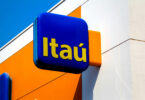Worldpay from FIS announced the launch of a new service that enables merchants to receive settlement in the USDC stablecoin. Note that this is not just that a retailer can accept USDC, but they can be paid by FIS using a stablecoin.
Typically when a merchant signs up with Worldpay to accept credit card payments, they’d receive the money into a bank account.
Potentially this could be attractive to businesses that lack a US Dollar bank account. Merchants outside the U.S. invariably have to convert any U.S. dollars received to a local currency, often losing a significant percentage in the foreign exchange conversion.
“Cryptocurrencies, for the most part, tend to be quite volatile and lack the ability to redeem at a predictable exchange rate in large quantities. That is why USDC is so popular among consumers who use crypto exchanges, and why it is so appealing to traditional merchants and other corporates,” said Nabil Manji, SVP, Head of Crypto and Web3 at Worldpay from FIS.
“By making it easier and more efficient for crypto-native companies and other corporates to receive and manage stablecoins, this will further drive corporate innovation in payments and benefit the consumer ecosystem.”
But first, Worldpay will run a pilot with Crypto.com as the client. FIS already has a close relationship with the cryptocurrency exchange and runs a node on the crypto.org blockchain.
In the last two years, the market capitalization of Circle’s USDC has grown from less than $1 billion to more than $51 billion. The vast majority of that growth has been driven by the crypto sector, particularly cryptocurrency lending. Before the DeFi boom, Circle’s had a focus on enabling more mainstream payments, along the lines of today’s announcement. If stablecoins become more widely adopted beyond the crypto sector, they could empower automated, conditional and programmable payments.
FIS has numerous other blockchain activities. It’s a partner of bitcoin asset manager NYDIG enabling hundreds of small U.S. banks to offer bitcoin to their clients. It also participates in the governing councils of two public permissioned DLTs such as Hedera Hashgraph in the United States and Klaytn in Korea.






